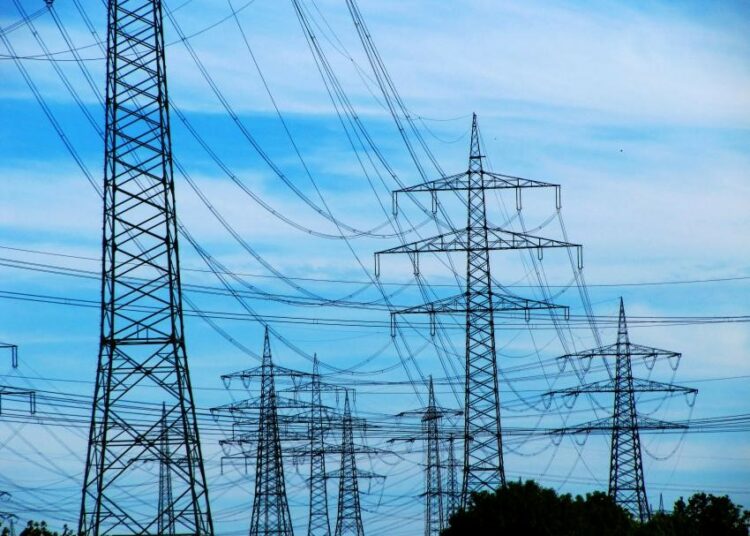The United Nations Development Programme (UNDP) has said that progress recorded by the implementation of the 2023 Electricity Act, is capable of reversing Nigeria’s energy-related constraints.
This is estimated to cost Nigeria between five per cent and seven per cent of its Gross Domestic Product (GDP), amounting to approximately US$25–29 billion annually.
Beyond these figures, the broader economic impacts of inconsistent electricity supply—particularly on productivity and business continuity – are substantial yet often underreported.
The UN also expressed delight with the level of transformation so far attended by Nigeria after the Electricity Act that was assented to by President Bola Tinubu on 8th June 2023.
Without doubt, Nigeria’s energy sector now stands at the cusp of a transformative era after the Electricity Act that was assented to by President Bola Tinubu on 8th June 2023 marks a two-year anniversary, according to Geoffrey Omedo,Technical Specialist – Climate and Energy Finance UNDP Nigeria.
Omedo, says the landmark legislation signalled a decisive shift from a centralised,federal-dominated electricity landscape to a more decentralized, private-sector-led, and multi-tiered electricity market.
“Firstly, we must start by acknowledging the recent finalization and endorsement of the National Integrated Electricity Policy (NIEP) that many partners – including UNDP Nigeria – collaborated with the Federal Ministry of Power to finalize. With the Federal Executive Council (FEC) approval of the NIEP on 5th May 2025, a new era in the electricity market for Africa’s most populous economy is underway.” he said.
According to him, Nigeria’s new electricity law is already making waves. Just a year after its passage in 2023, it’s driving major reforms at both the federal and state levels – offering real hope for solving Nigeria’s long-standing power challenges and tapping into its renewable energy potential.
He states that a big step forward is the creation of the Nigeria Independent System Operator (NISO), which separates system operations from transmission. This means the Transmission Company of Nigeria can now focus solely on managing the physical infrastructure, while NISO takes charge of running the power system more efficiently and at the right standards.These reforms are boosting industry confidence and setting the stage for a stronger, cleaner energy future.
This National Integrated Electricity Policy roadmap addresses critical challenges in Nigeria’s electricity sector through a comprehensive framework that provides clear guidelines for sustainable power generation, transmission, and distribution,”
The UNDP representative further observed that it is at the states levels that the country is witnessing a revolutionary re-awakening as most of the States 36 are hard at work, establishing their sub-national electricity markets where they will now fully manage generation, distribution – and in some, even transmission.
He disclosed that as at June 2026, 12 States (Enugu, Ekiti, Ondo, Imo, Oyo, Edo, Kogi, Plateau, Ogun, Ebonyi, Taraba, Delta, Lagos, Nassarawa, Jigawa and Bayelsa) have enacted their state electricity acts.
“Out of these 12, nine states have officially notified the National Electricity Regulatory Commission, and the transition arrangements are underway – with 3 of these fully taking charge of their state electricity markets.
“These are Enugu, Ekiti and Ondo. States like Abia, and Akwa Ibom have also just recently since completed their state electricity acts and are planning to establish vibrant markets to meet the rising demands from consumers for reliable, affordable and stable electricity. Already in some of these states, preliminary results are demonstrating that the Electricity Act 2023 is helping turn on the lights. “
In rural Ekiti East, Omedo, recalled specifically Local Government Areas such as Aiyekire that last received electricity in 2013, electricity lights are being turned on since the state officially assumed the function of managing their local electricity value chain.
Also, in states like Abia, factories are now receiving over 23 hours of uninterrupted power for the first time – thanks to a partnership with Geometric Power, an independent power producer operating in the state.
This reliable electricity supply is transforming the landscape: factories are returning, jobs are being created, and local talent is finding new opportunities. With steady power, communities can build sustainable livelihoods, while schools and health facilities will benefit from improved services.
He said if these gains are sustained and remaining challenges addressed, Nigeria’s growing electricity stability will continue to attract investors – proving that the Electricity Act 2023 is already powering real economic change.
Omedo, noted that for decades, Nigeria’s power sector has faced a range of structural challenges – including limited generation capacity, dependence on fossil fuels (which account for over 80 per cent of electricity), aging infrastructure, and a centralized framework that has sometimes constrained innovation and investment.
As the population grows and urbanisation accelerates, the demand for reliable electricity continues to outpace supply.
Recent policy discussions have acknowledged the importance of addressing legacy subsidy debts, stabilising foreign exchange conditions, and revising tariffs to support cost recovery and attract new investment.
While the shift toward cost-reflective tariffs remains a sensitive issue, early reforms – such as the 3rd April 2024 tariff adjustment from N66/kWh to N225/kWh for all Band A users with a commitment to guarantee at least 20 hours of electricity supply daily – are beginning to show signs of increased revenue collection and improved financial viability for the sector.
These incremental changes are important steps toward building a more resilient and investor-friendly energy ecosystem in Nigeria.
For the reforms in the sector to succeed, he said financing is key.
“Public finance alone will not solve the sector’s challenges, hence leveraging private sector capital is crucial. For instance, the Electricity Act 2023 envisages a revamped and upgraded grid. Deployment of advanced Supervisory Control and data Acquisition (SCADA) Energy Management System for the national grid is clearly another upcoming game-changer that will help improve efficiency. To further boost generation, investments in firm gas supply, and prioritising renewables is key.
“On distribution challenges, resolving the unmetered and estimated electricity bills is at the very core of enhancing sector productivity. Reducing the leakages and ensuring that all users pay the ‘right cost’ for electricity used, while activating the Power Consumer Assistance Fund (PCAF) for the underprivileged users is vital.
“All these measures are costly but bare minimums required to make the sector profitable. For instance, a revamped grid would undoubtedly unleash massive opportunities for integrating innovative digital smart tools and instruments to manage load, detect and even automatically fix transmission errors, while enhancing revenues collection through increased use of smart net meters. All these measures, featured in the new Integrated Electricity Policy, are at the heart of achieving energy security and fostering sustainable development across Nigeria.”
He said the policy envisages promoting private investment and competitive market mechanisms, recognising that significant capital injection from the private sector and development partners is essential for network expansion and achieving universal access.
The policy also lays the groundwork for coordination between Federal and State regulators, a critical element for a successful and harmonised transition to devolved state electricity markets. This is an area where more efforts are needed, as the states take up their functions to ensure coherence, and not chaos.
In terms of cross-cutting themes vital for the sector, aligning Nigeria’s power sector with the ambitious climate obligations as the 3rd Nationally Determined Contribution (NDC) is being finalised, as well as in line with the country’s net-zero goals is the silver lining in the Act.
Emphasising renewable energy deployment, gradual decarbonisation of key sectors such as transport, clean cooking, and reducing emissions in the oil and gas sector will unlock massive opportunities for carbon markets in Nigeria. Investing in energy transition measures will also unlock new green jobs in the millions as it will also unleash the massive localization of supply chains and technologies, incentivise local production and boost technology transfer making Nigeria First a reality.
“As we reflect on the rapidly evolving policy terrain in Nigeria, we believe that the sector has a lot of promise – if the pivotal reform measures are sustained. At UNDP, we have designed an Integrated Clean Energy Offer through which we are walking with the people and government of Nigeria in this exciting journey. Just this year, our partnership with the Rural Electrification Agency under the GEF African mini grids program will see us install over 23 solar minigrids to unlock key agricultural value chains across the country. We are galvanizing a ‘whole-of-government and society approach’ in the critical area of clean cooking, smart solar powered health facilities, as well as developing the NDC 3.0.” Omedo stressed.
He said the future of the energy sector is bright – if all these reform measures are sustained.





